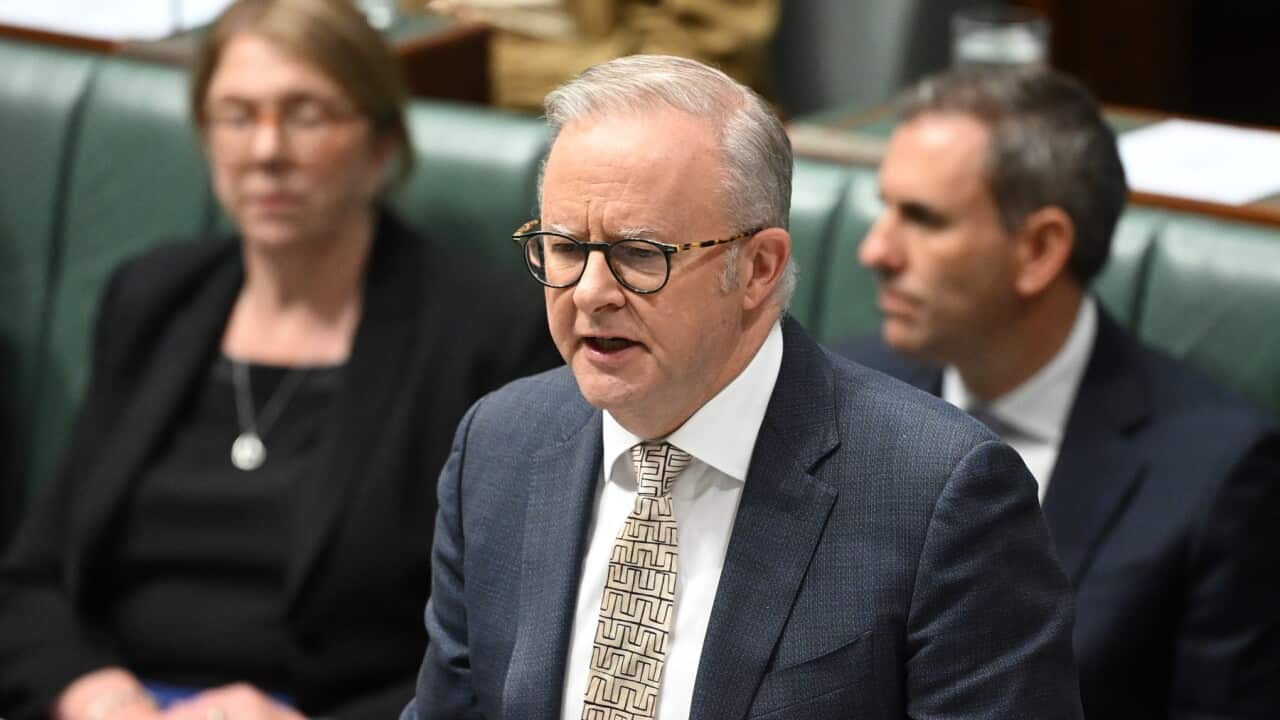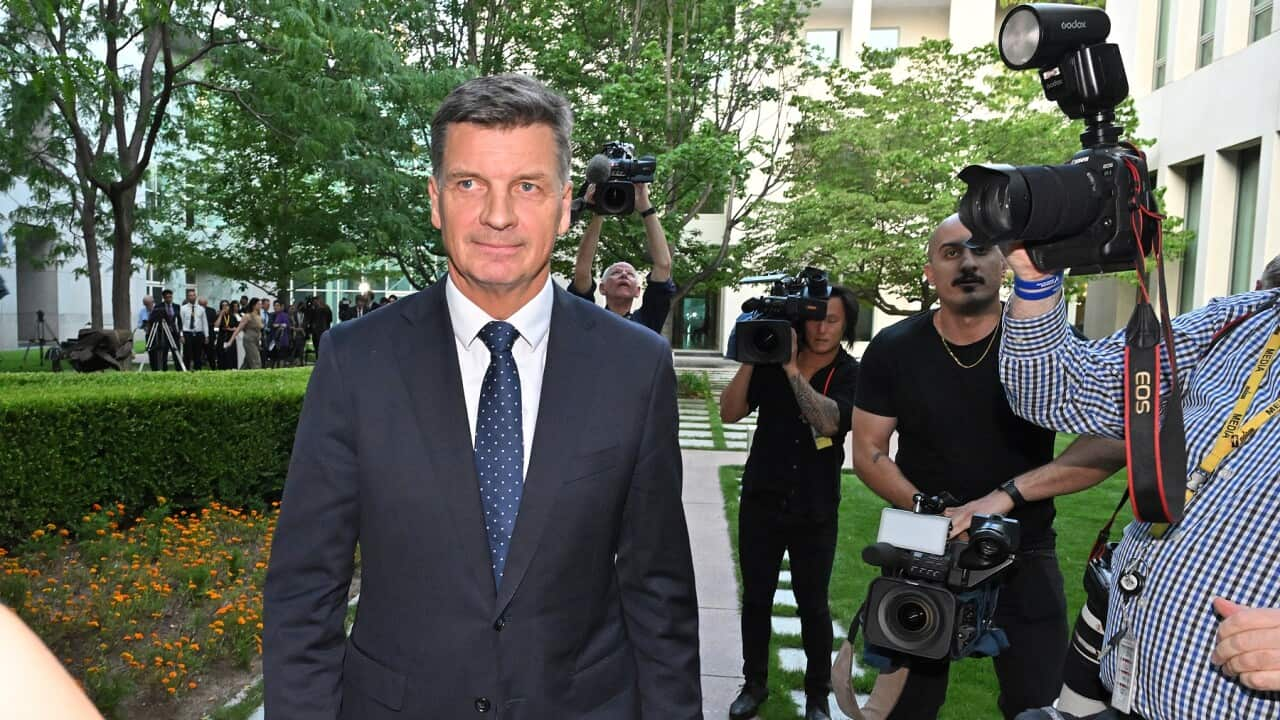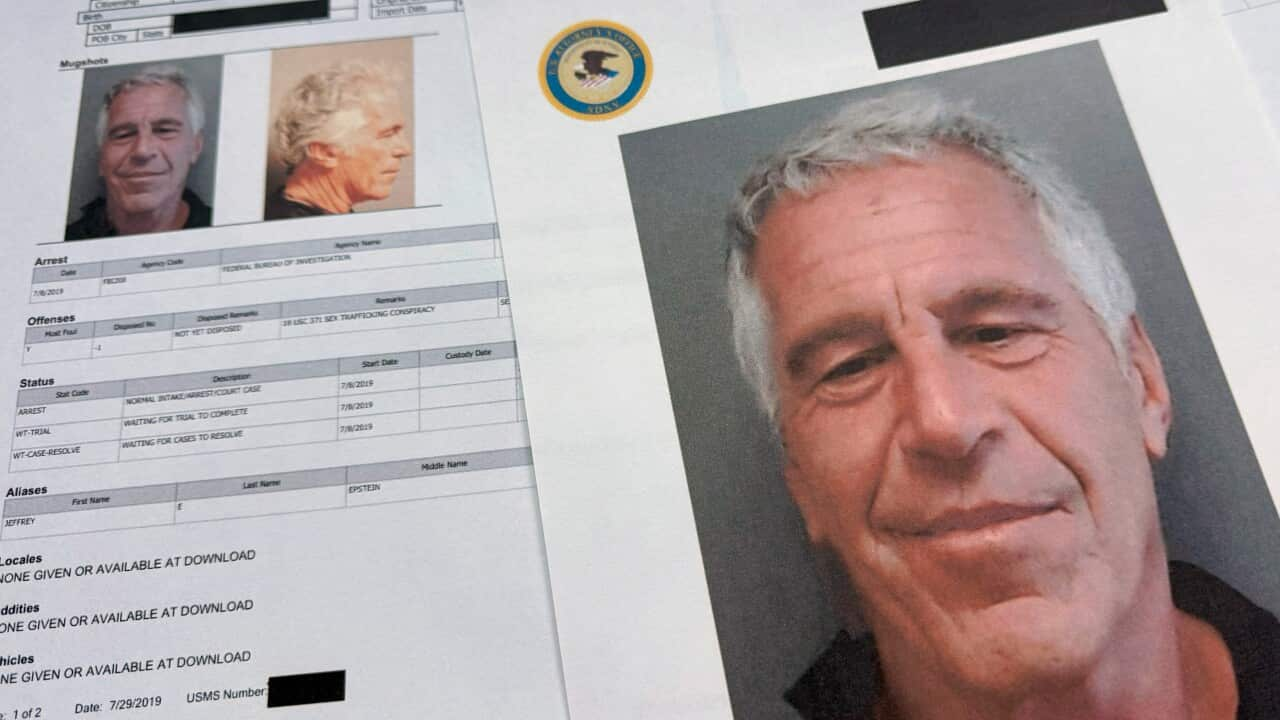Listen to Australian and world news, and follow trending topics with SBS News Podcasts.
TRANSCRIPT
Tensions over the war in Ukraine are again dominating headlines, but this week, the focus is on diplomacy rather than the battlefield.
A US official has announced that President Donald Trump’s plan for a meeting with Russia's leader Vladimir Putin is on hold - and the Kremlin also says there’s still no fixed date for a long-anticipated meeting between Presidents Donald Trump and Vladimir Putin, a summit Mr Trump once claimed would happen within two weeks in Budapest, Hungary.
Meanwhile, both Washington and Moscow are offering starkly different visions of how to end the war.
Speaking to reporters in Moscow, Kremlin spokesman Dmitry Peskov has dismissed reports that the summit had been delayed, insisting there’s nothing to delay because no date was ever set.
“Listen, we have an understanding of the presidents, but we cannot postpone what has not been scheduled. Neither President Trump nor President Putin gave exact dates. We need preparation, serious preparation. This may take time.”
When asked about European involvement, Mr Peskov took aim at NATO countries, accusing them of undermining peace.
“The Europeans are not the supporters of peace now. Neither are they a side which contributes to achieving peace by means of political and diplomatic contacts. On the contrary, they incite the Kyiv regime in every possible way to continue the war.”
This contradicts Washington’s tone, where President Trump continues to talk about ending the war through what he calls a fair deal.
At a Cabinet meeting in Washington with Australian Prime Minister Anthony Albanese, President Trump cast doubt on Ukraine’s chances of victory, but said he still believes a negotiated peace is possible.
“Well they could. They could still win it. I don’t think they will but they could still win it. I never said they would win it. I said they could win. Anything can happen, you know, war is a very strange thing.”
He also hinted that the US approach differs sharply from Moscow’s, saying peace will come through leverage, not concessions.
The US President believes that any meeting now would be unproductive.
"I don't want to have a wasted meeting. I don't want to have a waste of time. So I'll see what happens. ...You got two countries that are killing each other. The two countries are losing five to 7,000 soldiers a week. So we'll see what happens. It's...we haven't made a determination.”
Meanwhile in Kyiv, President Volodymyr Zelenskyy says Ukraine remains ready for a ceasefire, but insists Russia must show genuine interest in diplomacy, not just delay tactics.
“The frontline can spark diplomacy. Instead, Russia continues to do everything to weasel out of diplomacy. The greater Ukraine’s long-range reach, the greater Russia’s willingness to end the war. The discussion on Tomahawks turned out to be a major investment in diplomacy. ... We forced Russia to reveal that Tomahawks are precisely the card they take seriously.”
President Zelenskyy argues that strength, not compromise, will bring Russia to the table, and that Western hesitation to supply long-range weapons has only emboldened Moscow.
As leaders argue over peace talks, civilians are paying the price.
In Ukraine’s Chernihiv region, a wave of Russian drone strikes on Tuesday [[21 October]] killed four people and left hundreds of thousands without power and water.
Local officials say around 20 drones hit the northern town of Novhorod-Siverskyi, damaging homes and energy infrastructure.
Bohdan Nikiporets is co-owner of KK café house in Shostka in the Sumy Oblast of Ukraine.
His cafe has been experiencing power cuts, the result of Russian drone strikes.
"Our business runs 16 hours per day. And it's all on power stations, generators, like diesel or fuel generators. So we had to buy another one because one could not run so long. Basically for two weeks we haven't had an hour of light in here. No electricity whatsoever.”
The strikes are part of what Kyiv says is Moscow’s renewed campaign to cripple Ukraine’s energy grid ahead of winter.
So, where does diplomacy stand at the moment?
The Kremlin says no date.
Washington says preparation is needed.
Kyiv says only strength will bring peace.
So for now, the war grinds on between battlefields, boardrooms, and briefing rooms.













